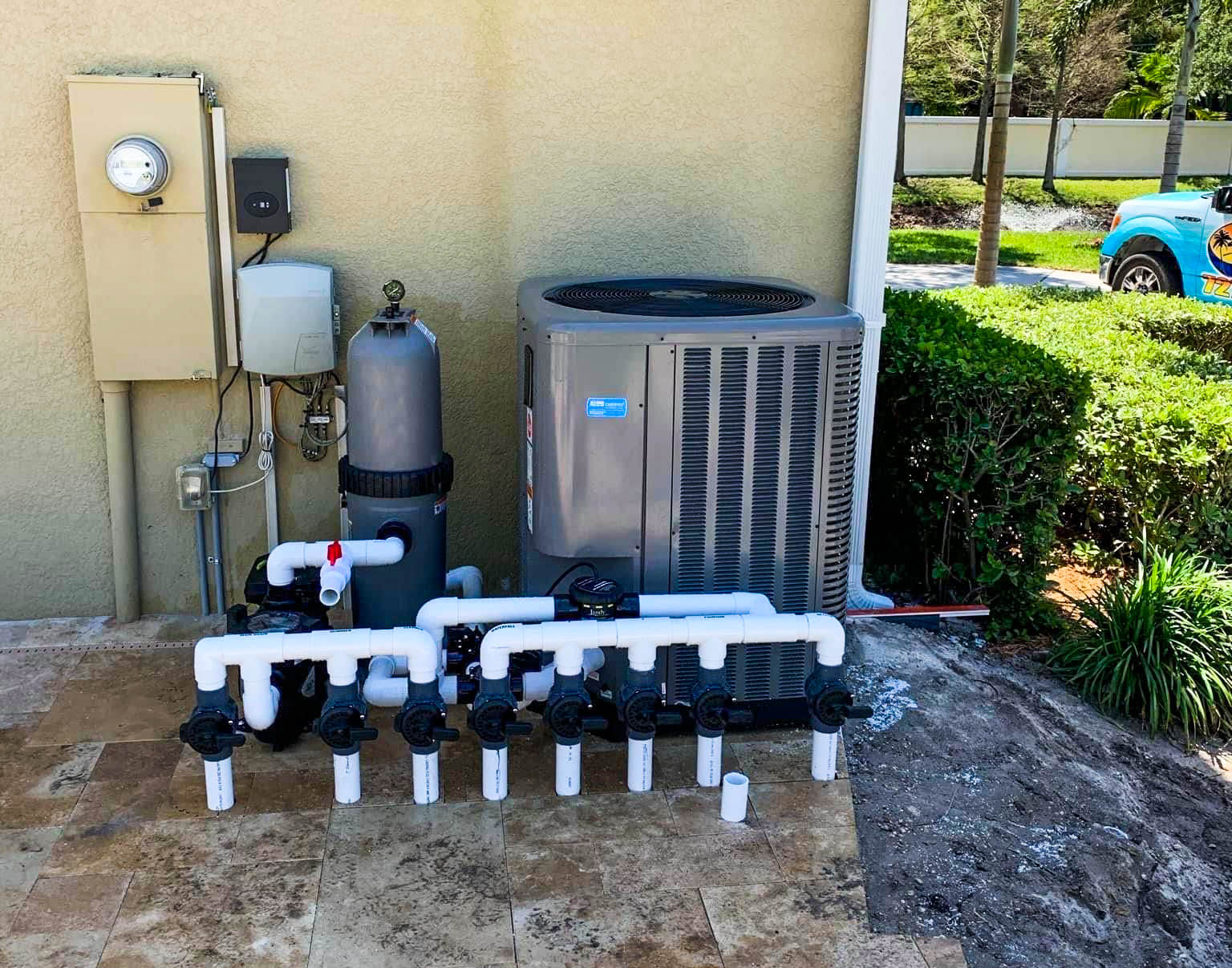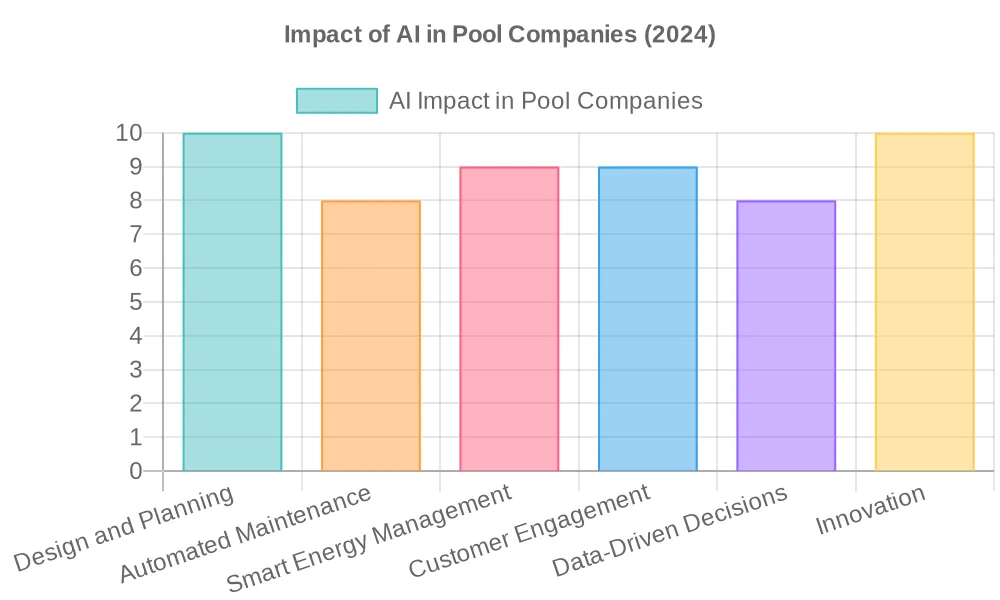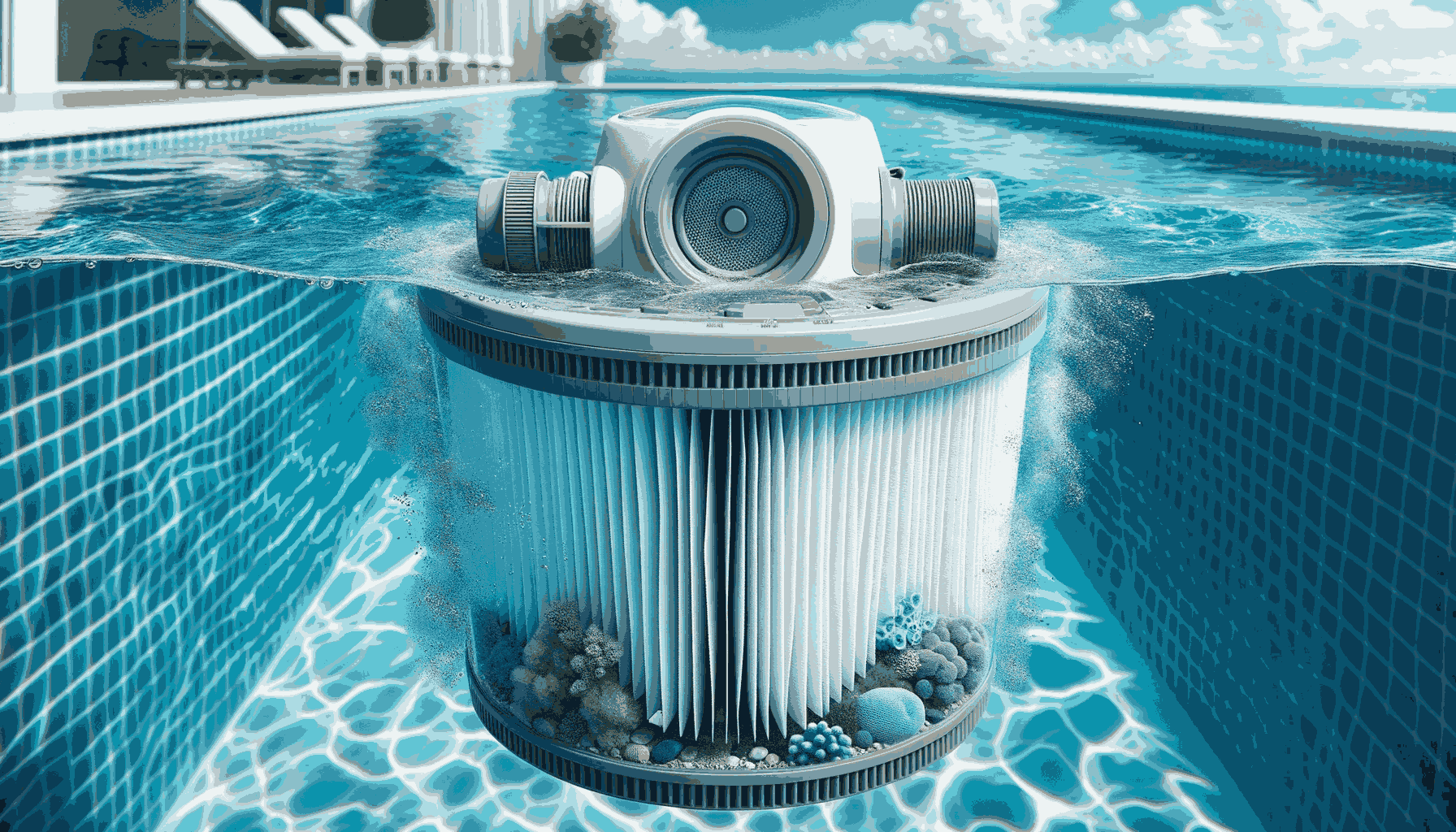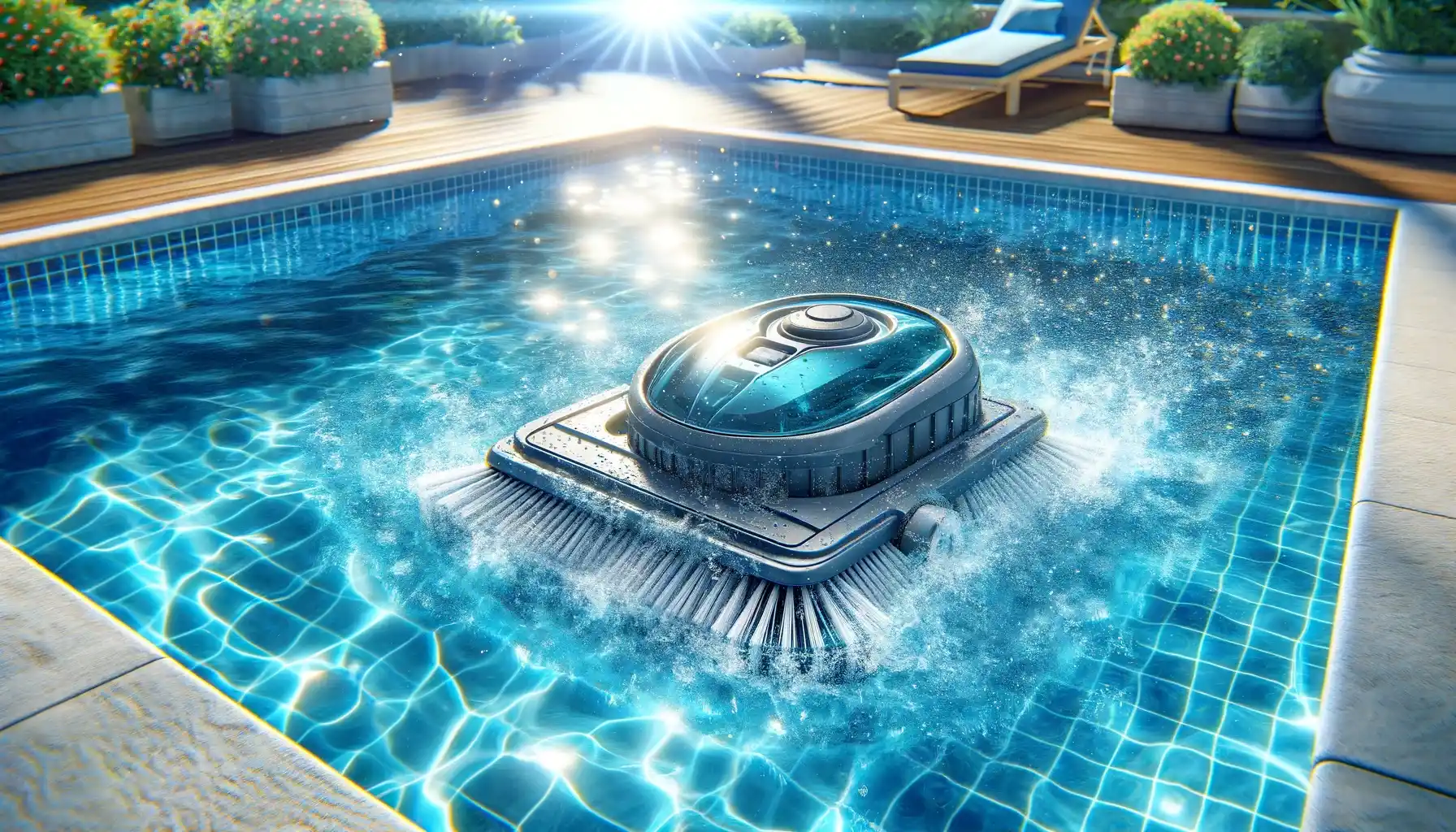
How Will Artificial Intelligence Help Pool Companies in 2024

In the evolving landscape of the pool industry, the year 2024 marks a significant turning point. The integration of Artificial Intelligence (AI) has begun to redefine how pool companies operate, promising an era of unprecedented efficiency and innovation. This article explores the transformative impact of AI on pool management and cost optimization, offering insights into a future where technology elevates the traditional pool experience.

Latest


What Factors Determine Pool Heater Costs In 2024

What Is The Best Height For A Virginia Pool Fence?
Categories
Revolutionizing Design and Planning
The first brushstroke in this technological masterpiece is AI’s involvement in the design and planning stages. In the past, constructing a pool was a time-consuming process, fraught with uncertainties and manual labor.
Now, imagine an AI system that can generate intricate 3D models, enabling pool companies to visualize the final product in real time. This isn’t just a futuristic dream; it’s the reality in 2024. By harnessing AI, pool companies can create detailed simulations, ensuring that every element of the pool, from the curvature of the walls to the placement of the tiles, is meticulously planned and executed. This precision not only streamlines the construction process but also significantly reduces the overall pool cost.
Moreover, AI-driven design tools cater to individual preferences, allowing customers to experiment with various styles and features. This personalized approach ensures that each pool is a unique reflection of the owner’s taste, transforming the backyard into a bespoke oasis. The cost savings from this efficiency aren’t just a boon for the customers; they’re a competitive edge for pool companies. By reducing waste and optimizing resources, AI helps in delivering cost-effective solutions that don’t compromise on quality.
Automated Pool Maintenance
Moving beyond design, AI’s influence extends to the realm of pool maintenance. Traditionally, pool upkeep has been a labor-intensive task, requiring regular monitoring of chemical levels, cleaning, and system checks. However, 2024 introduces a new era where AI-powered systems take the helm. Imagine sensors and robots equipped with AI algorithms that continuously analyze water quality, adjusting the chemical balance in real time.
This automation ensures a consistently clean and safe swimming environment, reducing the need for manual intervention.
The cost implications of this automation are profound. Reduced labor hours, minimized chemical usage, and predictive maintenance help in slashing operational costs. For pool companies, this means offering maintenance services that are not only more efficient but also more affordable.
The Artificial Intelligence systems can predict and prevent potential issues before they escalate, avoiding costly repairs and downtime, and helping pool companies, big time. This proactive approach is a game-changer in pool management, ensuring that pools remain in pristine condition with minimal effort and expense.
Reducing Pool Operating Costs
Energy consumption has always been a significant factor in pool maintenance costs. Heating, filtration, and lighting systems traditionally consume a considerable amount of energy, contributing to higher operational costs.
AI is set to revolutionize this aspect by introducing smart energy management systems, helping pool companies, as well as pool owners. These systems leverage Artificial Intelligence algorithms to optimize energy usage based on various factors such as weather conditions, pool usage patterns, and energy tariff rates.
The result is a highly efficient pool system that minimizes energy waste and reduces costs. For instance, AI can intelligently control pool heaters, ensuring they operate at optimal times to take advantage of lower energy rates while maintaining the desired temperature.
Similarly, filtration and lighting systems can be automated to run during off-peak hours, further reducing energy consumption. This smart energy management not only makes pool maintenance more sustainable but also more pocket-friendly, a crucial consideration in today’s cost-conscious world.

The Artificial Intelligence Personal Touch in Pool Companies
The year 2024 sees Artificial Intelligence (AI) not just as a tool for efficiency, but as a catalyst for enhancing customer relationships in the pool industry. In an era where customer expectations are ever-evolving, AI steps in as a game-changer, offering personalized experiences that resonate with individual clients. Gone are the days of one-size-fits-all solutions; Artificial Intelligence will enable pool companies to understand and cater to specific customer needs, creating a deeper, more meaningful connection.
Tailored Communication and Service
AI-driven customer relationship management (CRM) systems revolutionize the way pool companies interact with their clients. These systems analyze customer data, including past interactions, preferences, and feedback, to provide personalized communication and service recommendations. For instance, a pool company can use AI to send tailored maintenance tips or promotional offers on pool accessories that align with the customer’s interests and previous purchases. This level of personalization not only enhances customer satisfaction but also fosters loyalty, a crucial factor in an increasingly competitive market.
Furthermore, AI-powered chatbots and virtual assistants provide instant, round-the-clock support, answering queries, scheduling appointments, and offering advice on pool care. This convenience adds a layer of comfort for the customer, knowing that assistance is just a message away, thereby elevating the overall service experience.

Understanding and Anticipating Needs
AI goes beyond just personalizing current interactions; it’s about anticipating future needs. Through Artificial Intelligence’s predictive analytics, pool companies can forecast trends and customer behavior, tailoring their services accordingly. For example, AI can predict when a pool is likely to require maintenance or when a customer might be considering an upgrade, allowing the company to proactively reach out with relevant offers or advice. This proactive approach not only demonstrates attentiveness but also helps in managing pool costs effectively, as timely interventions can prevent costly repairs and energy inefficiencies.
Transforming Market Dynamics
In 2024, AI’s influence permeates beyond customer interaction, reshaping market dynamics in the pool industry. Companies leveraging AI gain a strategic edge, harnessing data-driven insights to make informed decisions about market trends, pricing strategies, and business expansion.
Data-Driven Decision Making
In the world of pool management, data is king, and AI is the key to unlocking its potential. By analyzing vast amounts of data – from market trends to operational metrics – Artificial Intelligence provides pool companies with actionable insights. These insights enable companies to optimize their services, adjust pricing strategies, and identify new market opportunities. For instance, AI can identify regions with increasing demand for eco-friendly pool solutions, guiding companies to target these areas with specific marketing campaigns and tailored offerings.
Competitive Advantage through Innovation
Artificial Intelligence fosters a culture of innovation, encouraging pool companies to explore new frontiers. Whether it’s developing energy-efficient pool technologies or introducing novel pool features, AI acts as a catalyst for innovation. Companies that embrace AI not only set new industry standards but also differentiate themselves in a crowded market. This competitive advantage is key to attracting new customers and retaining existing ones, especially in a market where technological prowess is increasingly equated with quality and reliability.

Long-Term Implications of Artificial Intelligence in Pool Companies, and the Pool Industry as a Whole
As we look toward the horizon of 2024 and beyond, the integration of Artificial Intelligence (AI) in the pool industry is not just a fleeting trend but a foundational shift shaping the future of pool management. Now let us look at the long-term implications and potential developments of AI in this sector, offering a glimpse into a future where technology and innovation continue to drive growth and transformation.
Sustainable Practices and AI
One of the most significant long-term impacts of AI in the pool industry is the advancement of sustainable practices. As environmental concerns become increasingly paramount, AI emerges as a vital tool in promoting eco-friendly solutions. Artificial Intelligence-driven systems optimize energy and water usage, contributing to a greener, more sustainable approach to pool companies. For instance, AI can intelligently manage pool heating and filtration systems to minimize energy consumption, aligning with global efforts to reduce carbon footprints.
Furthermore, AI’s predictive maintenance capabilities ensure that pools are operating at peak efficiency, reducing waste and prolonging the lifespan of pool equipment. This not only benefits the environment but also translates to lower operating costs for pool owners, making sustainable pool solutions both eco-friendly and economically viable.
AI and the Evolution of Pool Technology
Looking ahead, the potential for AI to innovate and evolve pool technology is boundless. We can anticipate the development of more advanced AI-powered cleaning robots, smarter pool monitoring systems, and even AI-integrated pool accessories. These advancements will continue to redefine the pool experience, offering higher levels of convenience, safety, and enjoyment.
Moreover, the integration of AI with other emerging technologies, such as the Internet of Things (IoT) and augmented reality, could lead to even more groundbreaking developments. Imagine a future where pool owners can use augmented reality to visualize pool upgrades or monitor their pool’s health through IoT-connected devices, all seamlessly integrated with AI systems for an intuitive, interactive experience.
Challenges and Opportunities
While the future of AI in the pool industry is bright, it also presents challenges that need to be addressed. One of the key challenges is ensuring the security and privacy of AI systems, especially as they handle sensitive customer data. Pool companies must prioritize robust cybersecurity measures to maintain trust and safeguard against potential breaches.
Another consideration is the need for continuous innovation and adaptation. As Artificial Intelligence technology evolves, pool companies must stay abreast of the latest developments to remain competitive and meet changing customer expectations. This requires a commitment to ongoing learning and investment in research and development.
Lastly, as AI becomes more prevalent, there will be a growing need for skilled professionals who can manage and optimize these systems. This presents both a challenge and an opportunity for job creation and skill development in the industry.

Conclusion
In conclusion, the role of AI in the pool industry is a testament to the transformative power of technology. As we move into 2024 and beyond, AI not only offers a pathway to enhanced efficiency, personalization, and sustainability but also opens doors to new possibilities and innovations. For pool companies and owners alike, the future holds a promise of pools that are not just a luxury but a smart, sustainable, and integral part of our lives.
The journey of AI in the pool industry is an exciting one, and as we navigate this evolving landscape, one thing is certain: the pools of the future will be smarter, greener, and more connected than ever before.
Latest

DIY Pool Pump Cover Ideas for 2024

What Factors Determine Pool Heater Costs In 2024

What Is The Best Height For A Virginia Pool Fence?
Categories
YOU'RE NOT IN THIS ALONE
We are with you every splash of the way
Need a pool fix or looking for an upgrade? We’re just one click away to help with all your pool needs.

